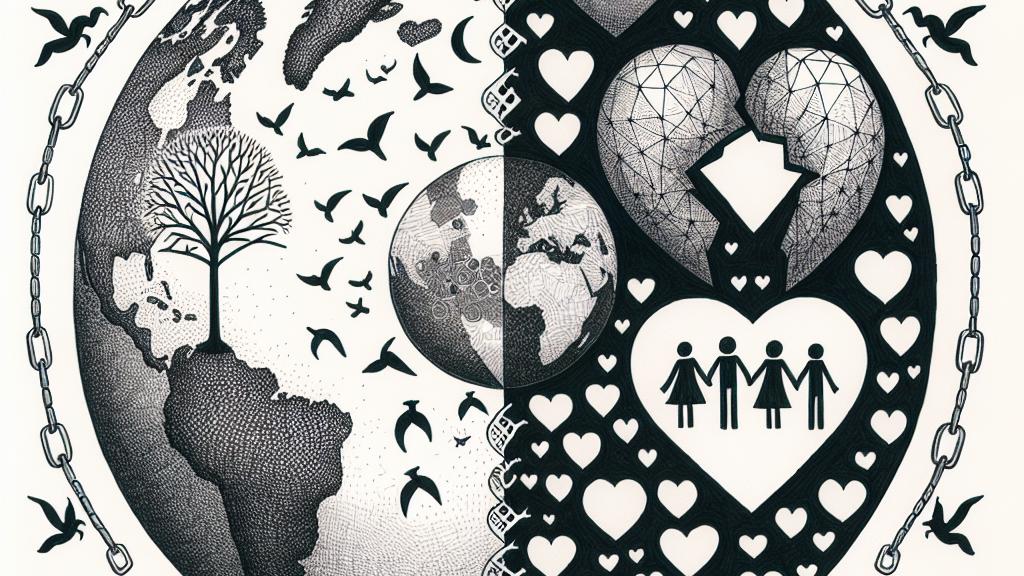Understanding How Values Affect Divorce Rates
Overview
- Cultural and personal values dramatically influence divorce outcomes across different cultures.
- A strong emphasis on autonomy and pleasure can lead to higher divorce rates.
- Being aware of your values can empower you to make more informed choices in relationships.

The Rising Tide of Divorce: A Global Overview
Throughout the globe, we are witnessing a notable rise in divorce rates, prompting many to ask 'Why are so many marriages failing?' Research from Hebrew University offers remarkable insights into this issue. It turns out that cultures that prioritize individual freedom often see a higher incidence of divorces. For example, in the United States, where independence is celebrated, couples frequently end their marriages. In contrast, nations that emphasize family values, like India or Mexico, tend to have significantly lower divorce rates. Such differences underscore the profound effect that cultural norms have on marital stability and highlight the importance of societal values in shaping personal relationships.
Personal Values: The Heart of Relationship Dynamics
When it comes to relationships, personal values are equally pivotal. Imagine a scenario where one partner thrives on spontaneity and seeks new experiences, while the other places a premium on stability and family tradition. This misalignment can quickly lead to frustration and conflicts that may tear couples apart. Conversely, partners who share similar personal values—such as traditions that honor their upbringing or mutual respect for each other's backgrounds—tend to enjoy stronger bonds. For instance, couples who actively engage in family traditions or community events often find that their shared values reinforce their commitment to one another, thereby creating a more robust partnership.
Dr. Gottman's Research: Predicting Divorce with Precision
Dr. John Gottman, a renowned expert in marriage stability, provides compelling evidence for couples looking to understand their relationship better. His extensive research reveals that certain negative communication patterns, known as the 'Four Horsemen'—criticism, contempt, defensiveness, and stonewalling—are strong predictors of divorce. Just think about it: if a conversation begins on a harsh note, often filled with sarcasm or disdain, it’s likely to spiral downwards. In fact, Gottman found that he could predict a couple’s future, including possible divorces, with up to 96% accuracy based solely on the first few minutes of their interaction. This underscores the vital importance of communication styles in relationships, further illustrating how cultural and personal values impact marital outcomes.
Empowerment Through Knowledge: Making Better Choices
Armed with the insights from research on values and divorce, individuals have an incredible opportunity to make smarter choices about their relationships. Visualize couples taking the time to identify and discuss their core values before making lifelong commitments to each other. This proactive approach could significantly alter the landscape of their relationship! By fostering open communication and understanding each other’s expectations, partners can build a solid foundation that reduces the likelihood of separation. Ultimately, recognizing and aligning values not only enhances the quality of partnerships but also fosters stability for future generations. After all, informed partners are empowered partners—and that is the key to a lasting relationship.

Loading...